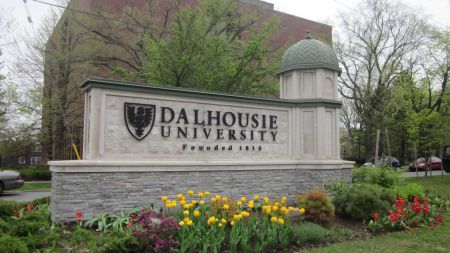(K'JIPUKTUK) HALIFAX - 150 post-doctoral researchers at Dalhousie University voted overwhelmingly in favour of representation by the Public Service Alliance of Canada (PSAC).
Post-doctoral researchers hold a doctoral degree (PhD) and do research under the supervision of university faculty. For the post-docs it's a necessary passage on the way to becoming a tenured professor, there is typically a five-year limit to this kind of engagement.
“Post-docs are in a grey zone,” Dave Shaw, regional organizer with PSAC, tells the Halifax Media Co-op. “They are no longer students, and the university sometimes doesn't regard them as workers but considers them self-employed researchers, in a state of limbo.”
Money of course is important, but it is certainly not the only issue, says Shaw. Academic freedom and who owns and gets credit for research are front and centre. These are also issues that are becoming more urgent because of government funding cuts and increased influence of corporations.
“At Dalhousie we have a lot of postdocs doing medical research, which is extremely valuable, and they need their intellectual property and authorship recognized,” says Shaw. “If you make a great discovery you want to be credited for it.”
Marjorie Stone, an English Professor at Dalhousie, in a letter endorsing the unionization effort, elaborates on this need to protect the researchers' integrity in the face of increased commercialization of research.
“In such contexts, even tenured faculty members with the protection of unions or professional associations can be vulnerable,” writes Stone, pointing to the Nancy Olivieri example. Olivieri is a haematologist who was pressured to suppress clinical evidence by the pharmaceutical company that was funding the research.
"Post-doctoral researchers are in a much more vulnerable position in such disputes than tenured faculty staff," Stone writes.
But money also matters. Post-docs are by no means rich, Shaw cautions. They often carry large debt loads and wages are not necessarily fair compensation. Quite often they have families to support. “Some don't even get access to university parking or library privileges, things other students or staff routinely receive, because they are in that grey zone,” says Shaw.
As union drives go, this one wasn't particularly difficult, Shaw says. “Post-docs are critical thinkers but once they had all the facts it wasn't a hard sell. Rather than dealing with issues on their own, they now have the collective voice of the union, and access to legal counsel. And the new contract will entrench what they are entitled to.”
Follow Robert Devet on Twitter @DevetRobert



